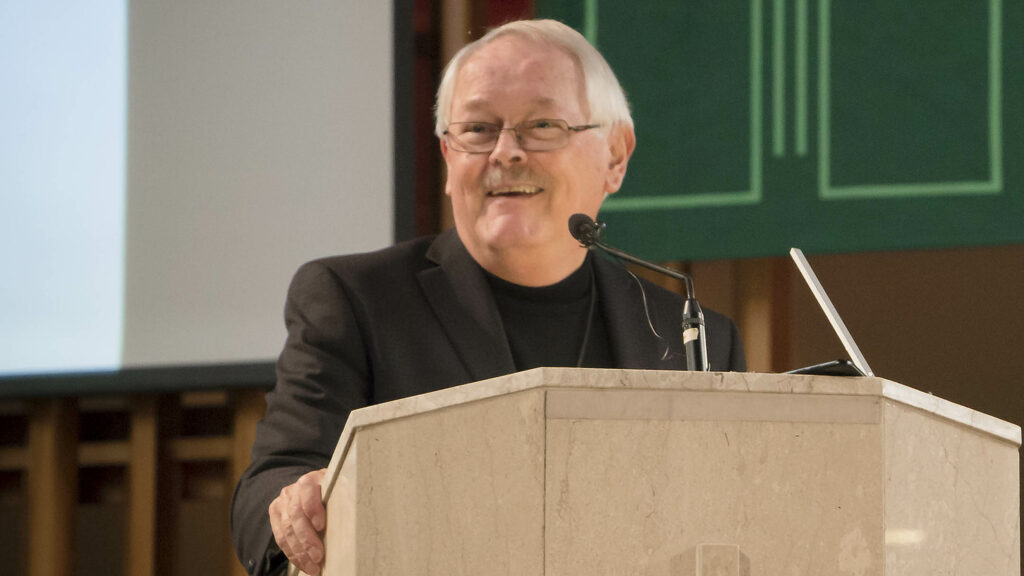During the years that I served as a Religious Superior for a province of Oblate Priests and Brothers in Western Canada, I tried to keep my foot inside the academic world by doing some adjunct teaching at the University of Saskatchewan. It was always a once-a-week, night course, advertised as a primer on Christian theology, and drew a variety of students.
One of the assigned readings for that course was Christopher de Vinck’s book, Only the Heart Knows How to Find Them: Precious Memories for a Faithless Time. The book is a series of autobiographical essays most of which focus on his home life and his relationship to his wife and children. The essays describing his relationship to his wife don’t overplay the romantic, but are wonderfully heart-warming and set sex into a context of marriage, safety, and fidelity.
At the end of the semester a young woman, 30 years old, said this to me as she handed in her term paper, a reflection on de Vinck’s book: “This is the best book I’ve ever read. I didn’t have a lot of moral guidance growing up and so I wasn’t always careful with my heart and was pretty free and existential about sex. I’ve basically slept my way through two Canadian provinces; but now I know that what I really want is what his man (de Vinck) has. I’m looking for the marriage bed!” Her eyes teared as she shared this.
I’m looking for the marriage bed! That’s a great image for what the heart calls home.
At the end of the day, what is home? Is it an ethnic identity, a gender, a citizenship, a house somewhere, the place where we were born, or is it a place in the heart?
It’s a place in the heart and the image of the marriage bed situates it well. Home is where you are comfortable, physically, psychologically, and morally. Home is where you feel safe. Home is where your heart doesn’t feel out of place, compromised, violated, denigrated, trivialized, or pushed aside (even if it is sometimes taken for granted). Home is a place which you don’t have go away from to be yourself. Home is where you can be fully yourself without the need to posture that you are anything other than who you are. Home is where you are at ease.
There are various lessons couched inside that concept of home, not least, as this young woman came to realize, some valuable insights apposite how we think about love and sex. Some of what’s at stake here is captured in the popular notion of longing for a soulmate. The trouble though is that generally we tend to think of a soulmate in very charged romantic terms. But, as de Vinck’s books illustrates, finding a soulmate has more to do with finding the moral comfort and psychological safety of a monogamous marriage bed than it has to do with the stuff of romantic novels. In terms of our sexuality, what lies deepest inside our erotic longings is the desire to find someone to take us home. Any sex from which you have to go home is still something which is not delivering what you most long for and is, at best, a temporary tonic which leaves you searching still for something further and more real.
The phrase, I’m looking for the marriage bed, also contains some insights vis-a-vis discerning among the various kinds of love, infatuation, and attractions we fall into. Most people are by nature temperamentally promiscuous, meaning that we experience strong feelings of attraction, infatuation, and love for all kinds of others, irrespective of the fact that often what we are attracted to in another is not something we could ever be at home with. We can fall in love with a lot of different kinds of people, but what kind of love makes for a marriage and a home? Marriage and home are predicated on the kind of love that takes you home, on the kind of love that gives you the sense that with this person you can be at home and can build a home.
And, obviously, this concept doesn’t just apply to a husband and wife in marriage. It’s an image for what constitutes home – for everyone, married and celibate alike. The marriage bed is a metaphor for what puts one’s psychological and moral center at ease.
T.S. Eliot once wrote: Home is where we start from. It’s also where we want to end up. At birth our parents bring us home. That’s where we start from and where we are at ease until puberty drives us out in search of another home. Lots of pitfalls potentially await us in that search, but if we listen to that deep counsel inside us, that irrepressible longing to get home again, then like the wise magi who followed a special star to the manger, we too will find the marriage bed – or, at least, we won’t be looking for it at all the wrong places.

